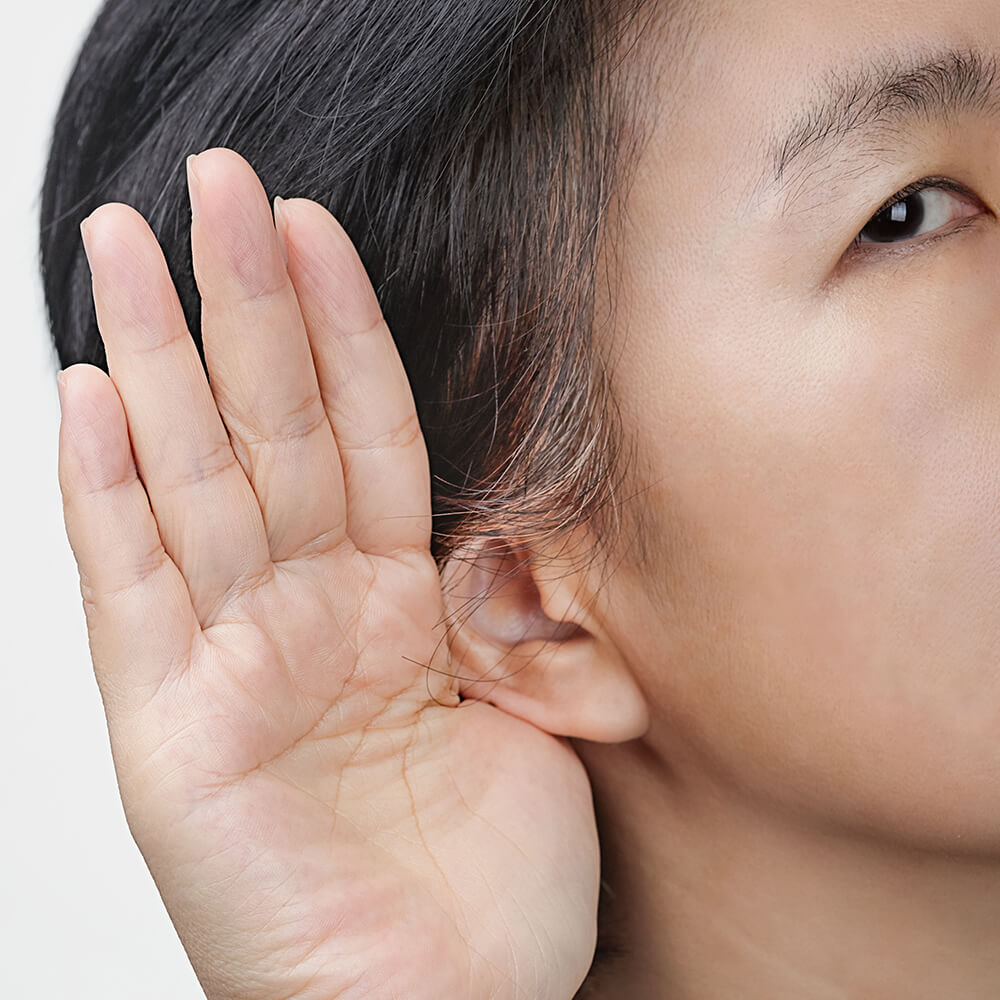Hearing Loss
Hearing loss is a common problem. Though it typically can’t be reversed, most of it can be successfully treated. In fact, about 36 million Americans have some type of hearing loss and more than half of those are under the age of 65. It can occur at birth or any age. It’s not all the same, and a hearing aid isn’t the solution for every hearing problem.
There are different degrees of loss from mild or moderate to severe and profound. Mild loss can become a bigger problem over time. Hearing loss can affect people on a social and emotional level. They may withdraw from social relationships, get frustrated or be embarrassed. It can even lead to anxiety and depression in more extreme cases. Though mild hearing loss is not always noticeable, it is critical that a board certified audiologist evaluate your degree of hearing loss and plan for treatment.
Aging is the most common reason for hearing loss. Approximately one in three people in the United State between the ages of 65 and 74 has hearing loss. About half of people age 75 and older having hearing loss. Adaptation, such as turning up the volume on the television or asking family members to speak up, is one alternative. However, hearing aids are most often the solution. When hearing aids don’t work, depending on the specific problem, cochlear implants or other surgical procedures may be needed.
Noise is another big factor in hearing loss. Avoiding excessive noise and using protection such as ear plugs can help prevent or delay hearing loss.
The staff at Touma Hearing Centers can evaluate hearing loss from a physical and audiological standpoint to determine the cause and nature. A hearing evaluation includes multiple tests to measure how well a person hears. A basic hearing test is quite simple, painless and takes about 5 to 15 minutes in a soundproof booth.

This hearing loss involves a situation where sound waves do not effectively travel through the ear into the inner ear (cochlea). This can happen for a number of reasons including wax buildup, perforated eardrum, fluid/infection of the middle ear or problems with the bones of hearing in the middle ear. Often these patients are best treated with methods other than conventional hearing aids, such as medication or surgery, and usually require the assistance of an otologist (medical/surgical ear specialist) or an otolaryngologist.
